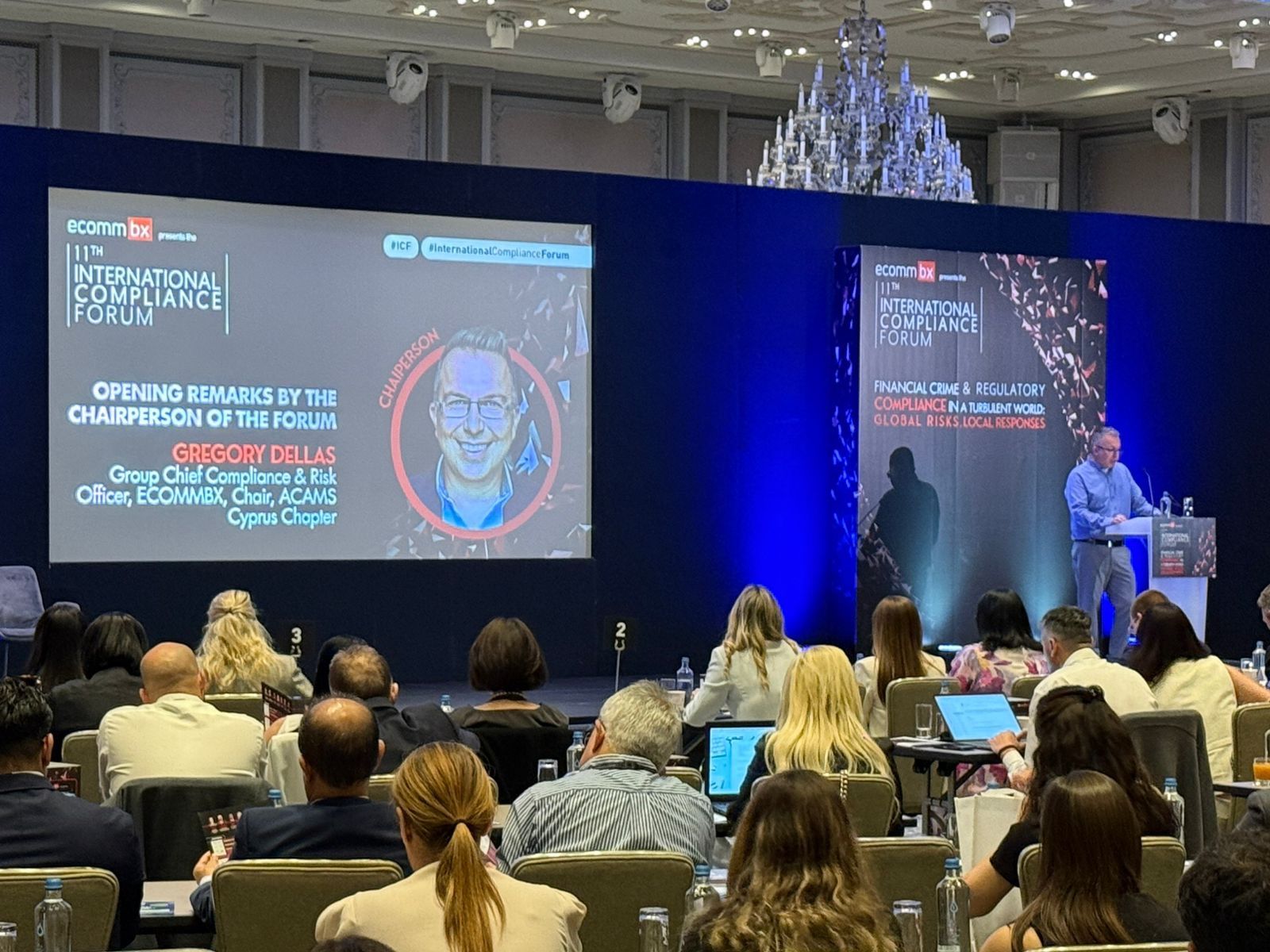Experts gathered at the 11th International Compliance Forum, held in Limassol this week, to discuss the implications of the EU’s new Anti-Money Laundering Authority (AMLA), expected to begin operations in 2028.
The forum, presented by ECOMMBX, featured insights from Melissa van den Broek, Senior Manager Integrity and Compliance (FEC) at KPMG Advisory in the Netherlands, and Gregory Dellas, Group Chief Compliance and Risk Officer at ECOMMBX and chair person of the ACAMS Cyprus Chapter.
In the presentation, titled ‘All eyes on AMLA: The implications of AMLA’s Function and Agenda for the Private Sector’, van den Broek said AMLA would begin with the direct supervision of up to 40 high-risk financial entities, including at least one in each Member State.
She explained that selection will be reviewed every three years, based on factors such as the level of activity across at least six Member States and the institution’s risk profile.
Joint Supervisory Teams (JSTs), led by AMLA, will carry out on-site inspections. The authority will also be able to assume supervision of other institutions if requested by national authorities or if local oversight is found to be inadequate.
Beyond direct supervision, van den Broek said AMLA will coordinate thematic inspections and conduct periodic assessments and peer reviews of national supervisory bodies, including those responsible for the non-financial sector, to ensure high standards and consistent application across the EU.
She noted that national authorities may be tasked with investigating potential breaches or ensuring compliance with AML/CFT rules, while a central database will be created to support the new supervisory framework.
AMLA will also act as the coordination hub for Financial Intelligence Units (FIUs), supporting joint analysis of cross-border cases, conducting risk assessments and managing the EU-wide FIU.net communications platform.
In addition to supervision and coordination, van den Broek said AMLA would issue guidelines, develop technical standards and produce educational material to raise awareness of money laundering and terrorist financing risks.
The authority is expected to become fully operational on January 1, 2028, with the first selection of supervised entities due by mid-2027.
According to its official agenda, AMLA’s priorities include completing the Single European Rulebook, strengthening cooperation between national authorities, the private sector and international organisations, and finalising its supervisory methodology in time to launch the JSTs.
As van den Broek put it, AMLA represents “a more integrated, transparent and effective supervision to combat financial crime in Europe”, with clear implications for the compliance strategies of all obliged entities.
Also speaking at the conference, Dellas focused on how global risks, digital transformation and shifting societal expectations are reshaping the role of compliance.
“Our values and our impact are what matter today in the field of compliance,” he told delegates, stressing that compliance must evolve into a guiding mechanism with substance, rather than a framework of procedures.
He said that in an environment shaped by geopolitical tensions, environmental crises and asymmetric threats, compliance must be rooted in shared responsibility, bridging the gap between governments, businesses and society.
According to Dellas, the rapid evolution of financial crime, driven by technological innovation, demands new skillsets and higher vigilance from compliance professionals.
“Flexibility and interconnection are no longer options, but prerequisites for survival and progress,” he said.
He warned that no business, organisation or institution can address modern threats in isolation. “Only through coordinated action can substantial prevention and combating of financial crime be achieved.”
Dellas concluded with a clear message saying that “compliance is now a matter of broader responsibility, and those who realise this in time will find themselves one step ahead in a world that does not wait.”






Click here to change your cookie preferences